Are you interested in fertilizing your garden, but don’t know what the BEST Garden Fertilizers are for your specific plant?
Are you interested in learning more about the different types of fertilizer and how to use them?
[toc]
After hours and hours of research, I have created the article, 12 BEST Garden Fertilizers for ALL Plants.
The list below is broken down by fertilizers for your fruits, vegetables, herbs, and flowers.
And scroll down to the bottom of this article to find answers to the 4 Most Frequently Asked Questions about Garden Fertilizers!
12 BEST Garden Fertilizers
Fruit Fertilizer (#1-3)
1. Jobe’s Organic Fruit Fertilizer
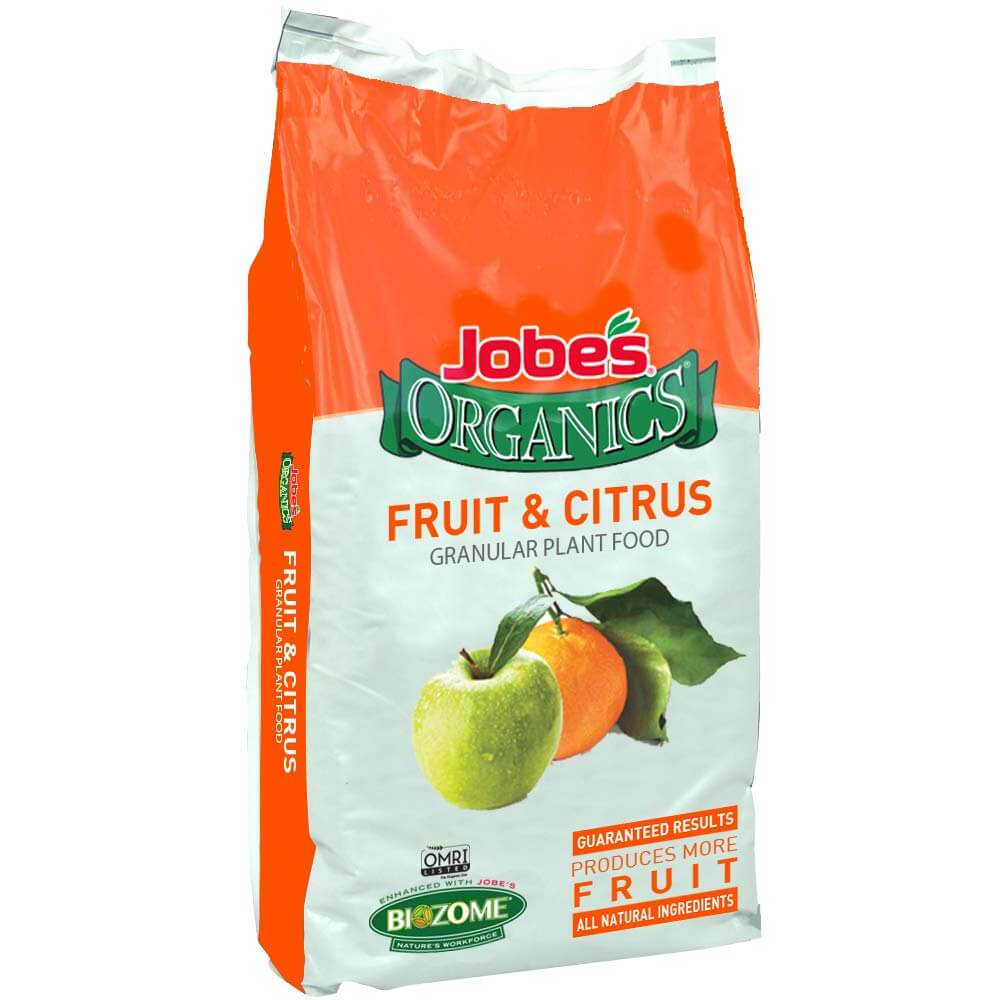
This is a fast-acting, organic fertilizer. It is one of the best granular fertilizers for new and established fruit plants.
In addition, it is certified by the USDA. It was also made with a proprietary mix that breaks down material faster.
This is one of the best garden fertilizers to improve soil condition and help your plants become
It should be also noted that is it a 3-5-5 fertilizer mix that is made to pour easy.
2. Miracle-Gro Fruit Spikes
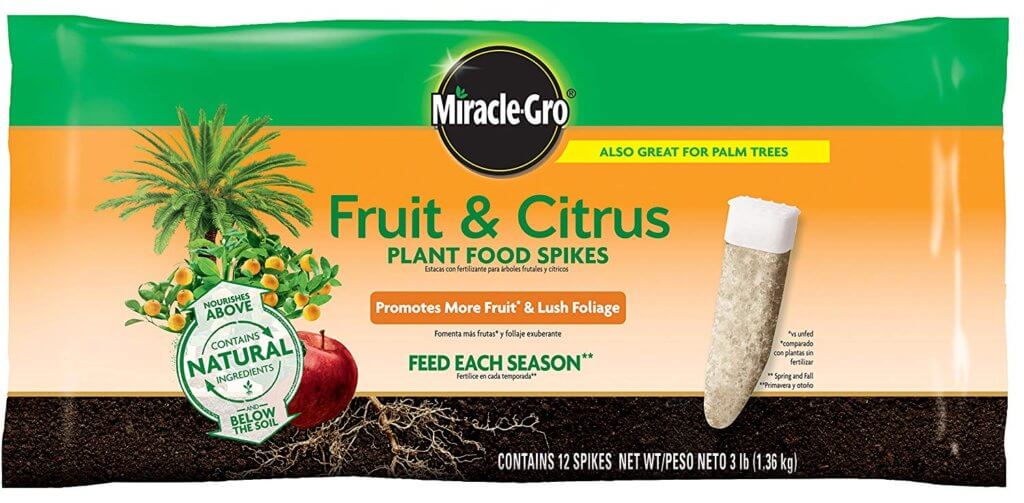
When looking at the best garden fertilizers this is a great choice.
It is incredibly easy to use. You only need to apply it once in the spring and once in the fall. It is also made with all-natural ingredients.
And it promotes more fruit and lush foliage growth. Not only this, but these spikes are perfect for helping promote root growth.
It should also be noted that it is a 10-15-15 mix.
3. Espoma Organic Fertilizer
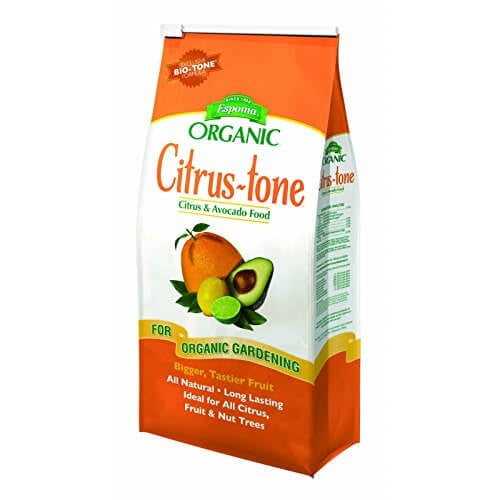
Another great option when you are looking at best garden fertilizers is the Espoma Organic Citrus Tone.
This company uses all-natural and organic ingredients that
In addition, it provides a continuous and complete balanced feeding for your plants.
It should also be noted that this is a 5-2-6 mix.
Vegetable Fertilizer (#4-6)
4. Miracle-Gro All Purpose Plant Food
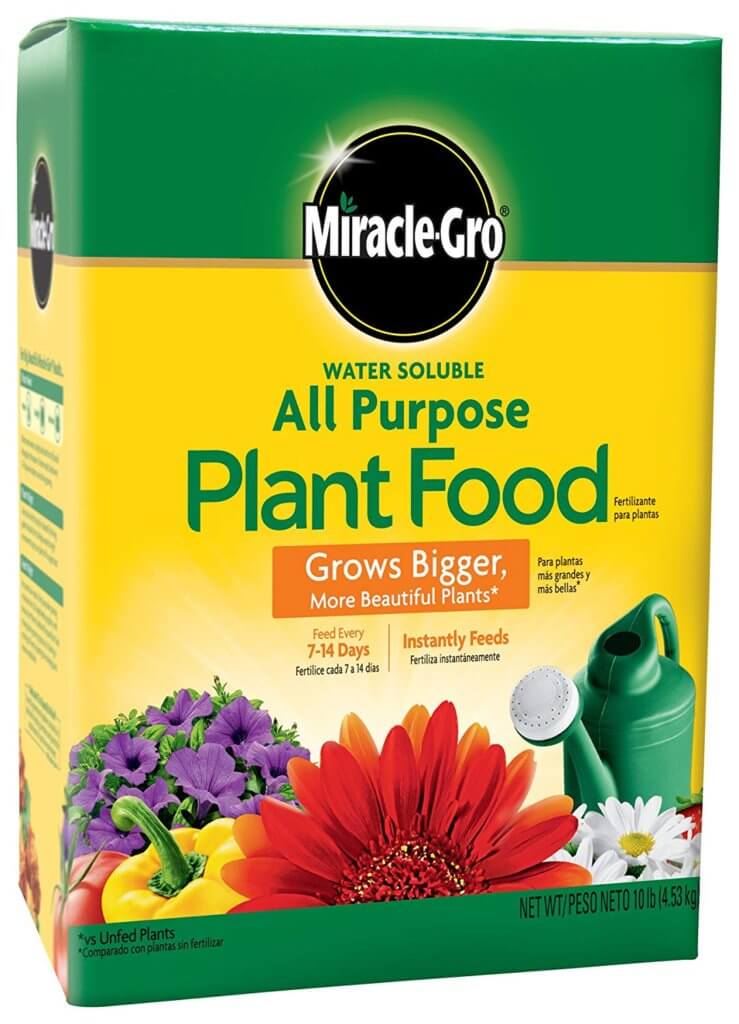
If you are looking for an
This fertilizer instantly feeds providing bigger, better fruit. You can apply it every two weeks with a garden feeder. The best part is that this is not just for vegetables.
This is by far one of the best garden fertilizers out there.
It should be noted that this is a 24-8-16 mix.
5. Miracle-Gro Shake n Feed
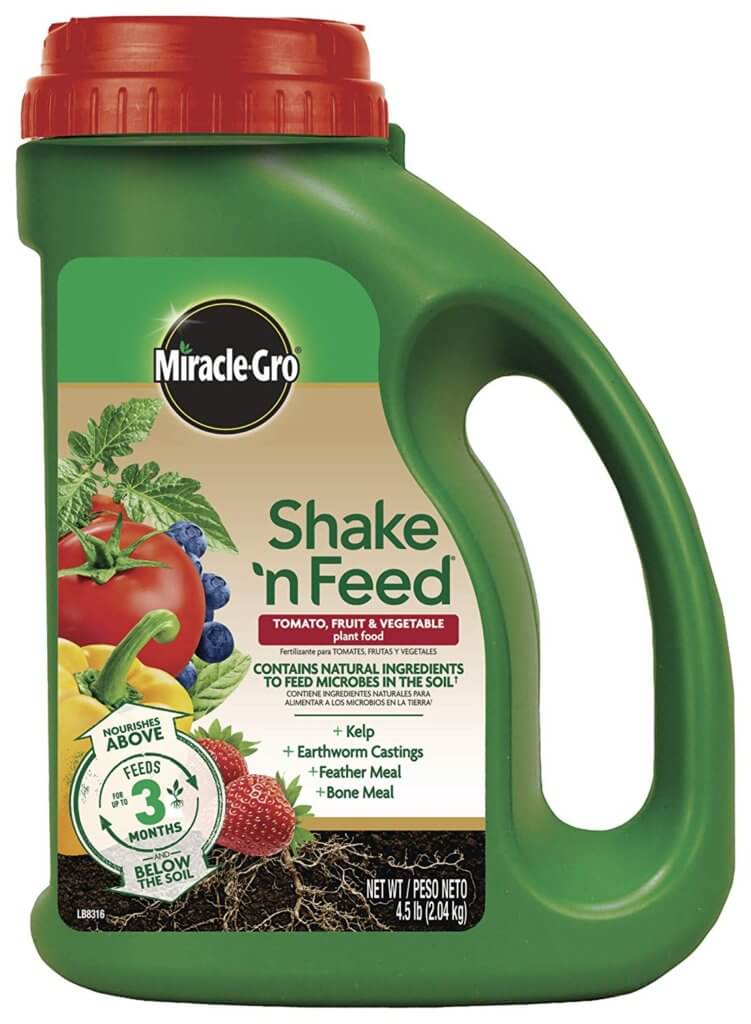
This is one of the best garden fertilizers for providing continuous micronutrients to help plants grow strong and produce more.
It contains natural ingredients and lasts up to 3 months! In addition, it contains calcium to help make your plants extra strong.
The best part is that it can be used for in-ground and pots!
This fertilizer is a 8-2-12 mix.
6. Osmocote Flower & Vegetable Plant Food
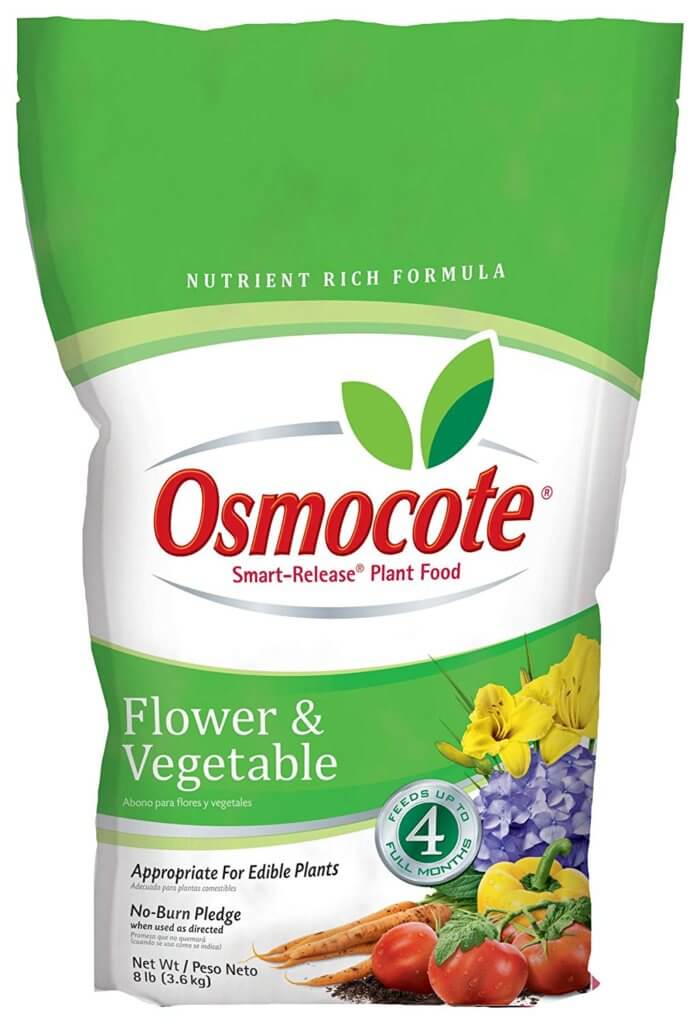
This is a great fertilizer that promotes vigorous growth and root development.
It is a
This is a 15-9-12 soil mix.
Herb Fertilizer (#7-9)
7. Earth Pods Fertilizer
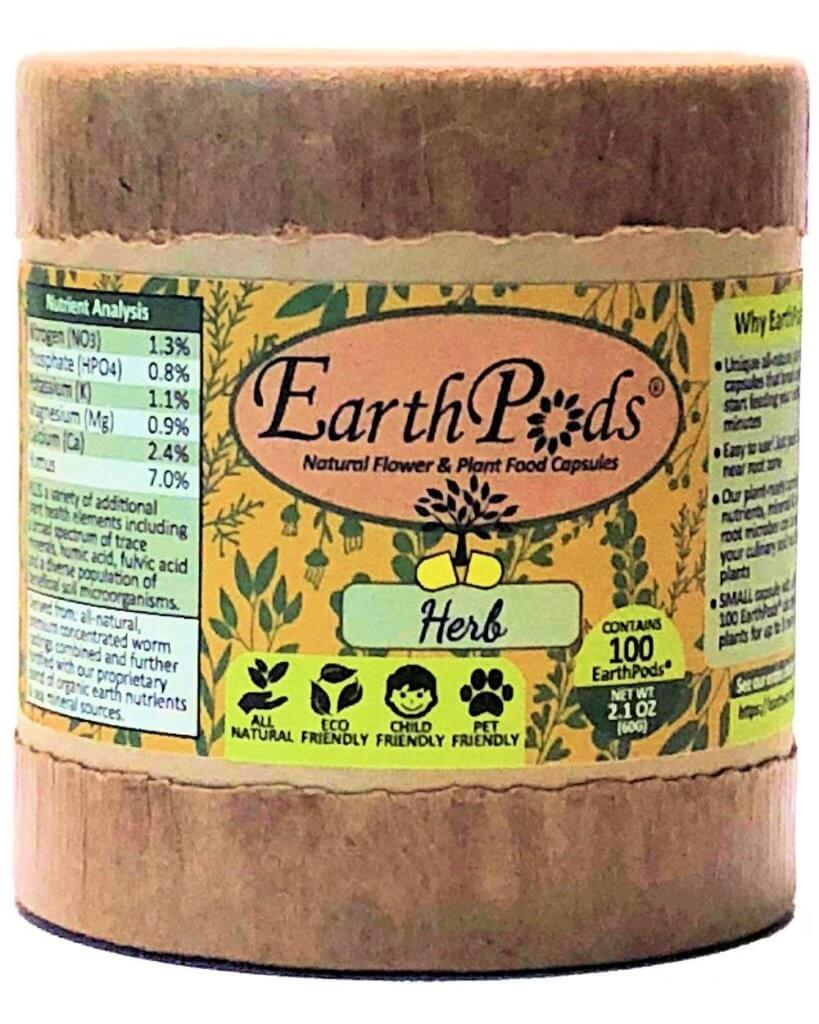
This is one of the few capsule-based fertilizers on the market and on this list.
This is perfect if you don’t want to measure, don’t want a mess, or have a small garden.
In addition, this is a great fertilizer to boost root and herb growth. Also, it is eco-friendly and will naturally dissolve into your soil!
This is a 2-2-4 fertilizer mix.
8. Dr. Earth Organic Fertilizer
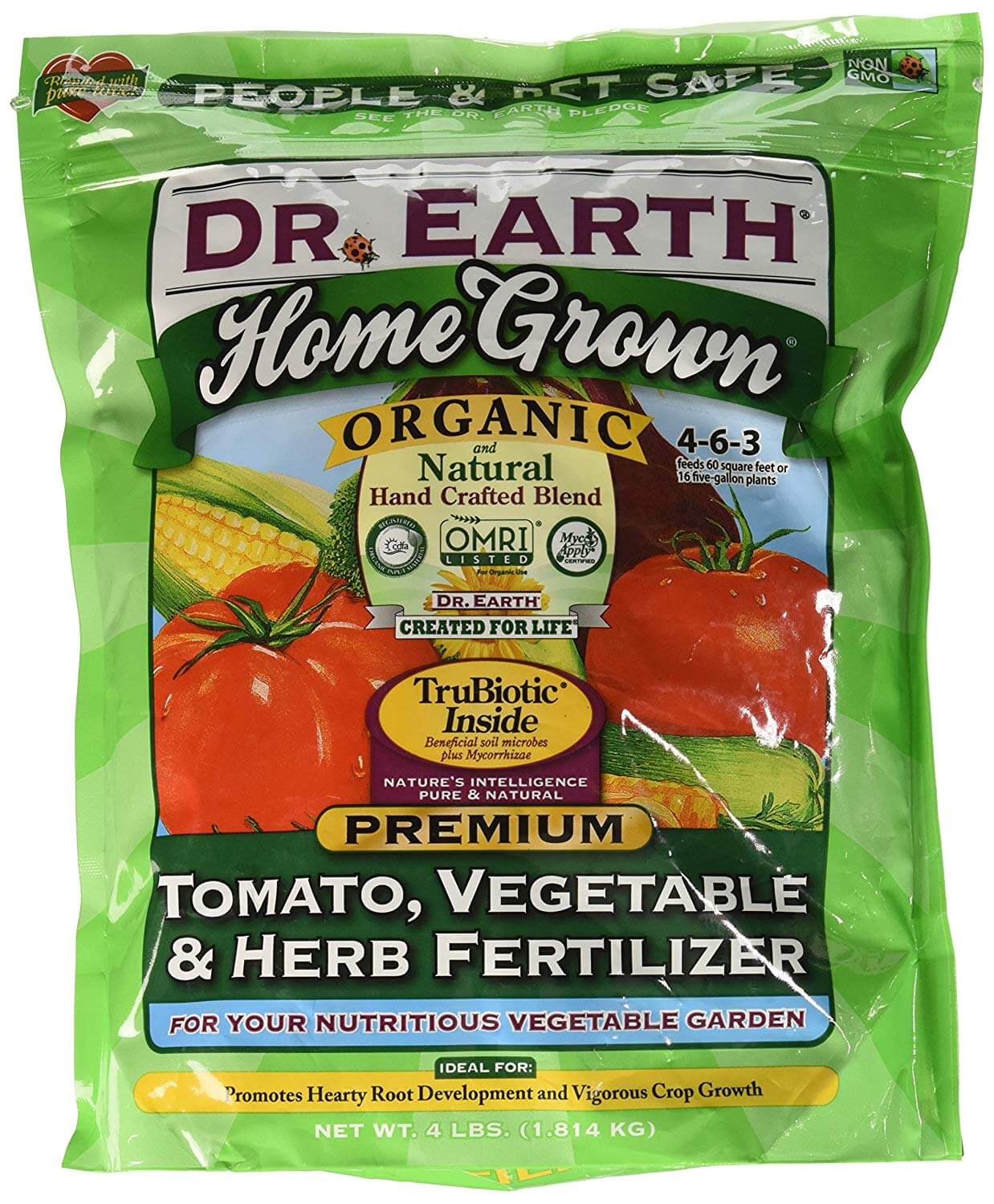
Do you want a purely organic herb fertilizer?
This is the one for you! It has ingredients like fish bone meal, feather meal, kelp meal, etc.
This is great for established plants and also for transplanted plants. You will get more abundant crops when using this.
Best of all is that it will increase your plants’ drought and disease resistance.
This is a 4-6-3 fertilizer mix.
9. Miracle-Gro Indoor Plant Food Spikes
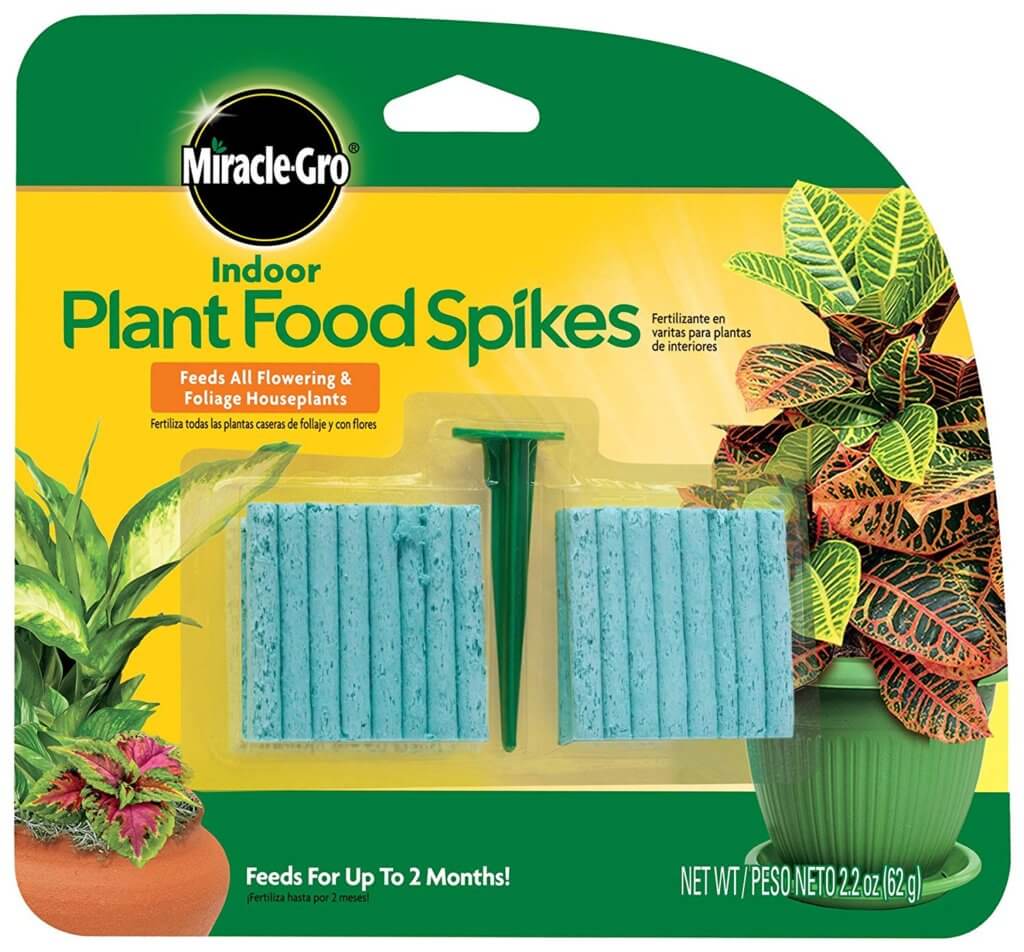
If you are want to use fertilizer spikes then this is the product for you.
These spikes are perfect for indoor house plants and herbs. It feeds all foliage and lasts up to 2 months.
In addition, it provides continuous release and contains macronutrients and micronutrients.
This is a 10-15-15 fertilizer mix.
Flower Fertilizer (#10-12)
10. Osmocote Plus Plant Food
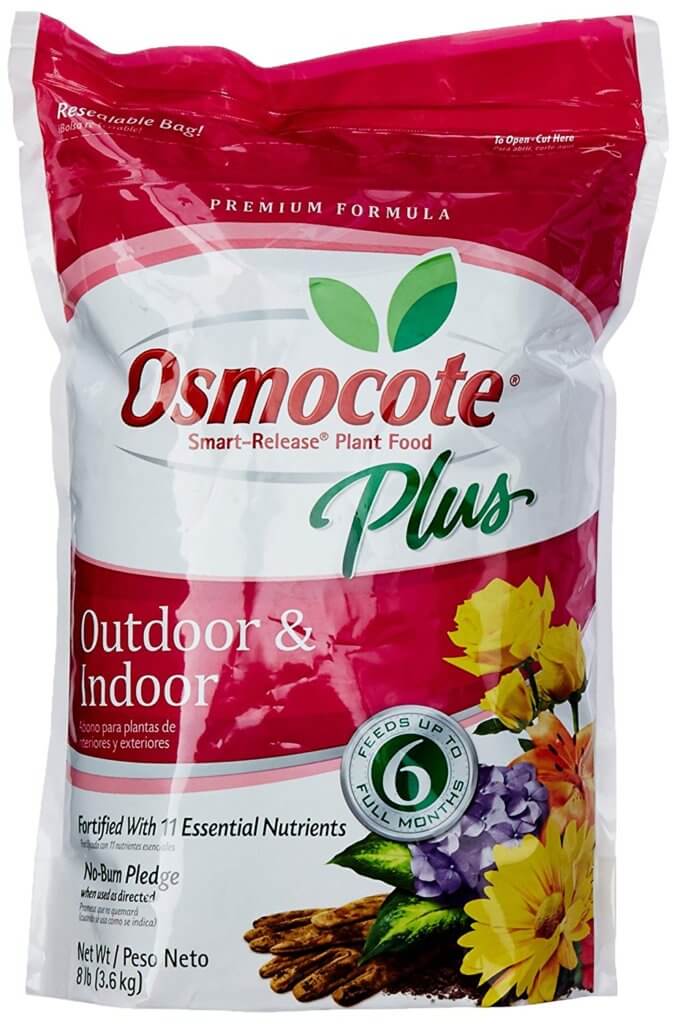
If you are looking for an all-around great flower fertilizer then you have found it.
This fertilizer is the best formula and contains 11 essential nutrients. In addition, it works for all plant varieties.
This is incredibly easy to use and feeds up to 6 months. In addition, Osmocote guarantees these burns too.
This is a 15-9-12 fertilizer mix.
11. Bayer Advanced Flower Care
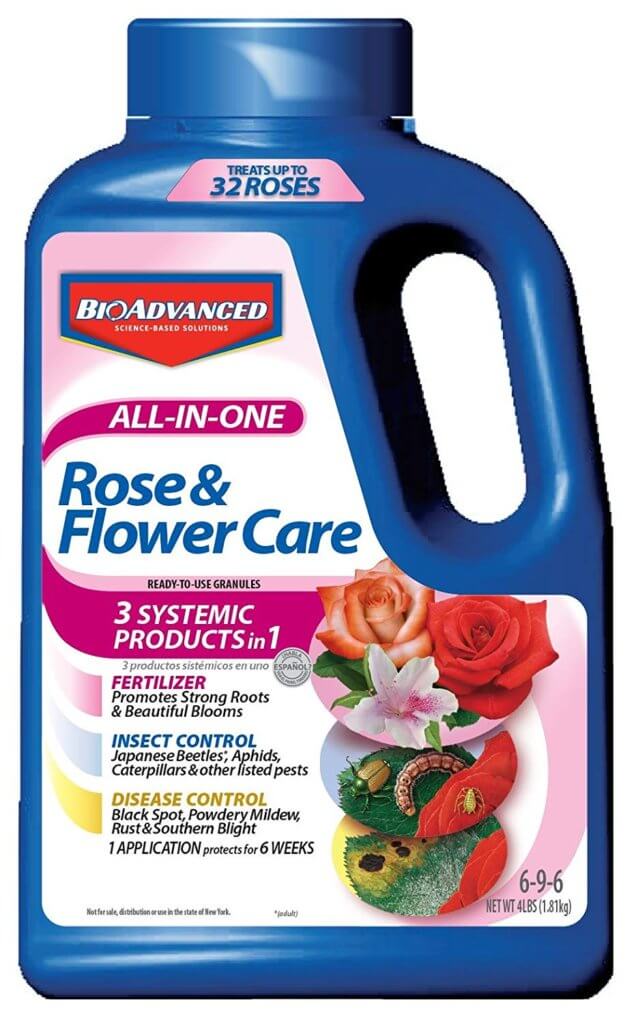
This is a great fertilizer for flowers and numerous rose bushes. It can literally treat up to 32 rose bushes.
This is a 3 systemic products in one. It controls insects, diseases, and fertilizers all at once. It is recommended to apply it every 6 weeks.
This is a 9-14-9 fertilizer mix.
12. Miracle-Gro Bloom Booster Flower Food
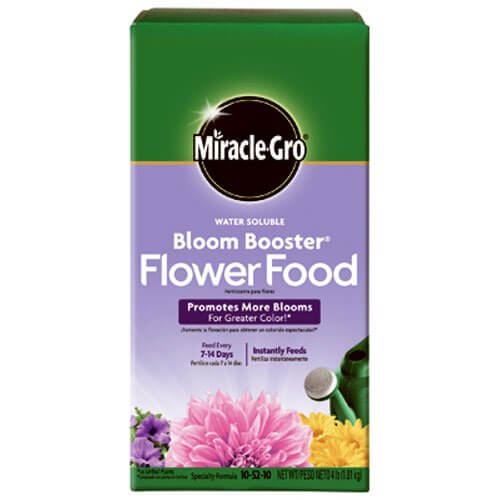
This is an unbelievable flower food for all blooming plants. It instantly feeds. And it is recommended that you feed every 2 weeks.
What I love about this is that it helps you prevent overfeeding and burning as long as you follow the instructions.
This is a 10-52-10 fertilizer mix.
Frequently Asked Questions
#1. How Do I Apply Garden Fertilizer?
Fertilizing your garden is not as easy as pouring it from the bag onto your plants.
There are actually 4 techniques that can be used to most effectively help your plants grow.
1) Broadcast Before Planting
There are several very simple tasks involved in this technique.
- First, you will need to apply the fertilizer to the soil.
- Next, you will need to till the fertilizer into your soil.
- After this is completed, you will want to plant and then water.
- Typically, you would then apply fertilizer to your plants every 4 to 6 weeks after.
2) Row Application
The second technique to applying fertilizer to your garden is called row application.
- This again happens before you plant your garden. You will apply the fertilizer in a strip to the side of the row before planting.
- After you plant your garden you can integrate the fertilized soil into your plants.
3) Start Solution
- This type of fertilizer application made be the easiest. Very simple you dig your hole and apply the fertilizer.
- After you have applied your fertilizer you will want to transplant your plants into the hole.
4) Growing Plants Application
The final technique for fertilizing your garden is for growing plants.
- Very simply, apply the fertilizer just to the side of your plants and then water. It’s that simple.
*My only suggestion with fertilization is to never directly apply it on the plant or in the center of the plant. This could “burn” the plant and even kill it!
If you prefer watching videos to learn how to apply garden fertilizer then I recommend the below tutorial:
#2. What are the Different Types of Garden Fertilizer?
A) Granular
Granular fertilizer is a dry fertilizer that can be applied with a spreader.
One of the benefits of this type of fertilizer is that you can see the actual fertilizer. You can also see where you have applied it and where it needs to be applied.
This type of fertilizer can be slow-release or quick-release.
Slow-Release fertilizer releases nutrients steadily over an extended period of time. This means you only have to fertilize once or twice a year.
Quick-Release delivers nitrogen immediately.
Because of this, you will need to fertilize frequently. Make sure you read the instructions of the fertilizer to have a better understanding of how to do this.
B) Liquid
Another type of fertilizer for your garden is liquid fertilizer.
Liquid fertilizer needs to be diluted before it can be applied. It can be applied using a canister, hose, or a watering can.
It is easy to apply and is quickly absorbed.
One of the disadvantages of this type of fertilizer is that it can wash away from the rain.
So make sure to apply this when no rain is in the forecast.
C) Spikes
The final type of fertilizer that can be applied to your garden is spikes.
Spikes are fertilizer in the shape of sticks. This is a slow-release fertilizer meaning it will be released over time.
It is applied directly to the ground and is incredibly easy to use.
This is perfect for beginning gardeners.
#3. What Should I Consider When Buying Garden Fertilizer?
Below, are 5 Tips I recommend before purchasing fertilizer.
Tip 1 – Get your soil tested!
Before you purchase the BEST Garden Fertilizer you must first understand what nutrients your garden currently lacks.
For this, you will want to conduct two tests.
You will first need to conduct a soil test. For this, I recommend purchasing a home soil test.

Next, I recommend continuously testing your soil. For this, I recommend a pH Meter.

Tip 2 – Fertilize with the right nutrients!
When analyzing your soil test there are numerous nutrients your plants may need.
Below, is a list of the nutrients plants need for strong growth.
- Carbon – This is found in the air and is essential for plant growth
- Hydrogen – This is found in water and again is needed for plants to grow strong
- Oxygen – This is found in water and air. This is a key component that all other nutrients will use to help plants grow.
- Nitrogen – This is the most lacking nutrient in garden soil. This is the one nutrient that can help plants grow the fastest
- Phosphorous– This nutrient helps stimulate root growth
- Potassium – This nutrient helps plants become more disease and drought-resistant
- Magnesium – This helps plants better process sunlight
- Sulfur – This nutrient provides plants with protein. This is the building block of life
- Other nutrients that are needed for plant growth are boron, copper, iron, zinc, chlorine, and manganese.
Related Article: Ultimate Composting Guide: What to Compost
Tip 3 – Buy the right type of fertilizer
Having an understanding of what nutrients are and how they can help your plants is important. But once you identify a deficiency it is important to decide what NPK mix you need.
NPK mix includes three nutrients: Nitrogen, Phosphorous, and Potassion.
- Typically, a fertilizer will have three digits, such as 1-1-1.
- The first digit represents nitrogen.
- The second digit represents phosphorous.
- The third digit represents potassium.
Please, see the list below to identify what typical fertilizer mix is right for you:
- 1-1-1 All-purpose fertilizer
- 1-2-1 Promotes root system strength
- 1-2-2 Promotes fruit growth and flowering
- 3-1-1 Promotes leafy growth
Tip 4 – Decide on Organic or Synthetic
My next tip for deciding on the Best Gardening Fertilizer is simple:
Buy either organic or synthetic fertilizer.
Synthetic fertilizer releases nutrients quickly and should be applied in the spring.
- This type of fertilizer comes in liquid, granular, or spikes.
Organic fertilizer releases nutrients slowly and should be applied in the fall. It typically is not concentrated meaning that the odds of killing plants are much less.
Below, are my three favorite organic fertilizers.
Jobe’s Organic All Purpose Fertilizer
Tip 5 – Learn the best time to fertilize!
While a soil test is a great way to determine what nutrients are lacking, there are other things to beware of.
- You can tell if there is a fertilizer deficiency if your plants have yellow or small leaves.
- In addition, there is a deficiency if there is poor flowering or no fruit growth.
- Finally, there is a deficiency if the plant is small.
- You can tell if there is too much fertilizer if you have all yellow leaves. In addition, there is too much fertilizer if there is poor quality fruit.
#4. Why Fertilize Your Garden?
If you are one of the 50% of gardeners that do not fertilize, you may be asking why you should start now?
You should use one of the best garden fertilizers on this list because EVERY plant NEEDS it.
Fertilizer is a great gardening tool and a simple way to nourish your gardens.
In addition, your current land or store-bought soil may not have the correct nutrients for your plants.
Finally, common potting soil that you use to start seeds typically does not have the correct nutrients for growing plants.
Conclusion
As I have talked about above, there is an art and science to fertilizing.
While it is not hard, it does take time to understand how to most effectively use it for different plants.
As a reminder…
- Every plant needs fertilizer. Make sure you read the instructions and apply as needed.
- Most soil does not have all the correct nutrients for your plants. This is why fertilizer is essential.
- There are three types of fertilizer; Granular, Liquid, and Spikes. Each one meets the different needs of a gardener and you may have to use all three.
- I recommend getting your soil tested, deciding to use organic or synthetic, and what type of NPK mix you need.
- There are four types of ways to apply fertilizer: Broadcast before planting, row application, start solution, and growing plant application. You may have to use a mix of these four for best results.
- Generally, you cannot purchase one fertilizer for all plants. I recommended sticking with the best garden fertilizers listed above for your fruits, vegetables, herbs, and flowers.
What’s Next?
If you like this article then I highly recommend reading:
Best Raised Garden Beds for ALL Plants